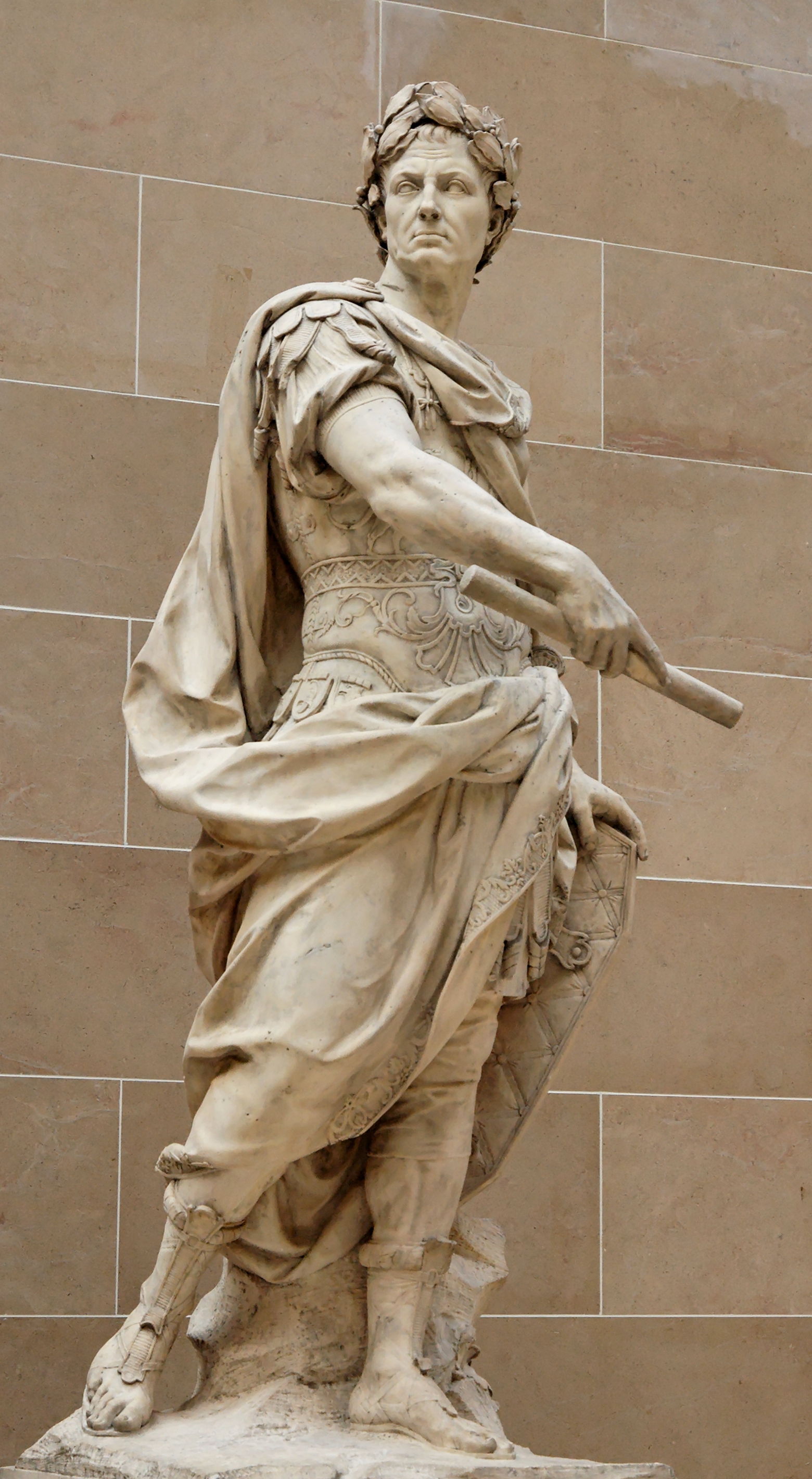Gaius Julius Caesar
A successful military general, his leadership would capitalize upon the uncertainty of the recent history of the Romans and lead to a shift from a Roman Republic to a Roman Empire.
 In 100 BCE, Julius Caesar was born into the gens Julia, who claimed to be descended from Aeneas through his son Iulus and therefore to be descended from Venus. Despite this lineage, the Caesars were not particularly influential. He came to age during the civil war between
Marius and
Sulla. He was the nephew of Marius and had married the daughter of
Cinna. These connections made him a target for the new regime, and he had to go into hiding, until Sulla eventually recalled him from hiding in 81 BCE.
In 100 BCE, Julius Caesar was born into the gens Julia, who claimed to be descended from Aeneas through his son Iulus and therefore to be descended from Venus. Despite this lineage, the Caesars were not particularly influential. He came to age during the civil war between
Marius and
Sulla. He was the nephew of Marius and had married the daughter of
Cinna. These connections made him a target for the new regime, and he had to go into hiding, until Sulla eventually recalled him from hiding in 81 BCE.
In 80 BCE, he went East, and began his military career. He also went on a mission to secure assistance from King Nicomedes, but he remained there for so long that a rumor arose that he was the “Queen of Bithynia.” When Sulla died in 78BCE, Caesar made his way back to Rome. However, as he was passing the way across the Aegean Sea, he was kidnapped by pirates and held prisoner. The pirates demanded a ransom, and Caesar, after the ransom was paid, captured the pirates and crucified them as he had (jokingly) promised them when he was in captivity.
In 73 BCE, he was appointed Pontifex Maximus, and in 71 BCE, he was elected a military tribune. In 69 BCE, he was elected quaestor, and he soon set off for Spain. In 63 BCE, he was pointed Pontifex Maximus. In 62 BCE, he served as praetor, and in the next year, he was sent as propraetor to Hispania Ulterior (Further Spain). During his term, he conquered two tribes and was hailed by his troops. In 59 BCE, he was elected consul with Marcus Bibulus.
→ Attalus Entry: C. Julius Caesar18
→ Wikipedia Entry